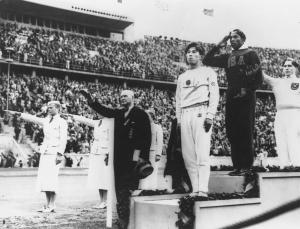On March 11th, Chinese President Xi Jinping practically became an “eternal” leader of China, after the parliament passed a constitutional amendment removing presidential term limits. As a result, 3 out of 4 countries that are geographically surrounding South Korea -North Korea, Russia and China- are “officially” dictatorships. Right now, in the 21st century, in the era of democracy and freedom – what is happening? How did Kim Jong-un, Xi Jinping and Vladimir Putin become strongmen? In this article, we will check on what has stopped them from moving forward in the age of democracy
Before we start, let’s make sure about the definition of dictatorship: a system of government in which a country or a group of countries is ruled by a single party or individual (a dictator) or by a polity, and power is exercised through various mechanisms to ensure that the entity's power remains strong. Now let’s check the current political system of each country and the beginnings of dictatorship.
North Korea's political system is built upon the principle of centralization named Juchae, and the Workers' Party of Korea (WPK) is given legal supremacy over other political parties. Everyone knows about the Kim family’s dynastic succession. The first one who ruled North Korea was Kim Il Sung, who led the communist revolution under the confusing situation that happened right after Korea’s independence. He was elected as the National Defense Commissioner in 1956 and he purged all of his political opponents to stabilize government. This bloodstained authority has allowed both Kim Il Sung and his son Kim Jong Il to rule North Korea until their death, and right now his grandson Kim Jong Un is the National Defense Commissioner. The term of the National Defense Commission is 5 years, but that is useless since the same person is reselected again and again, until his death. North Koreans don’t dare resist this absurd dynastic succession for the reason of Juchae brainwashing and brutal repression which risks one’s life.
Russia’s political system is based on the multiparty system. The presidency term is 6 years and one person cannot serve consecutive terms more than 2 times. Vladimir Putin, however, is about to take power for his 24th consecutive year from 2000 to 2024. He was elected the 7th president of Russia on March 18 2018, winning by 76% approval. This is the 4th time for him to be president, but it does not violate the law since he was the prime minister while choosing his close ally, Dmitry Medvedev to be the president from 2008 to 2012. Putin’s long term seizer of power was possible by zealous support of Russians and his rigid attitudes, promoting nostalgia for the former glory of the Soviet Union. Putin was elected after former president Boris Yeltsin, who failed in improving the economy, security and was imbued with corruption. After Yeltsin resigned as a president, he picked Putin to sustain his authority.
Putin then attacked the Chechen rebels mercilessly and announced publically his plans to make Russia powerful. During his term, there have been strict repression of civil liberties, corruption and the decline in the economy. But Russians still support Putin for his charismatic Russia first-attitudes.
Finally, the political system of China is a one party system; the Chinese Communist Party. After lifting the presidential term limits by the National People's Congress, Xi Jinping was reelected president unanimously on March 17 2018. Modern China has repeated its political history. Starting from Mao Zedong’s lifelong rule, which was a total centralization of authority, to Deng Xiaoping’s division of authority institutions, weakening the powerful dictatorship. The meaning of Xi’s limitless power seizure is significant. It can be seen as a movement toward the former centralization of power, reinforcing the presidential authority. This makes a difference not only to inside of China, but also other countries confronting China. The more powerful Xi becomes in China it will have a similar effect on international situations. When Xi was first elected president, he said he would achieve the China Dream. Removing presidential term limits is just a part of his plan to make his country more powerful.
Dictatorship should be a thing of the past. Human rights, freedom of the speech, a multiparty system, and democracy became the basic values of the modern society. Dictatorship, however, has always begun for the same reasons, such as political stability and economic efficiency. Neglecting the diverse voices of the people and oppressing freedoms has always caused dictatorships to pay a price. Well, those countries –North Korea, Russia, and China- may have stability or made their countries stronger or will continue to attempt these things, but it will not last forever. Those countries will make a bold and active political move toward other countries, to take control of their internal situations. So the neighbors or trade partners of those countries should take a flexible measure on diplomacy, checking for possible changes in those countries, but be careful to protect their own national securities.
|
|
|
|
|
Dictatorship
|
Lee Jumi can9803@naver.com
<저작권자 © 홍익대영자신문사, 무단 전재 및 재배포 금지>





